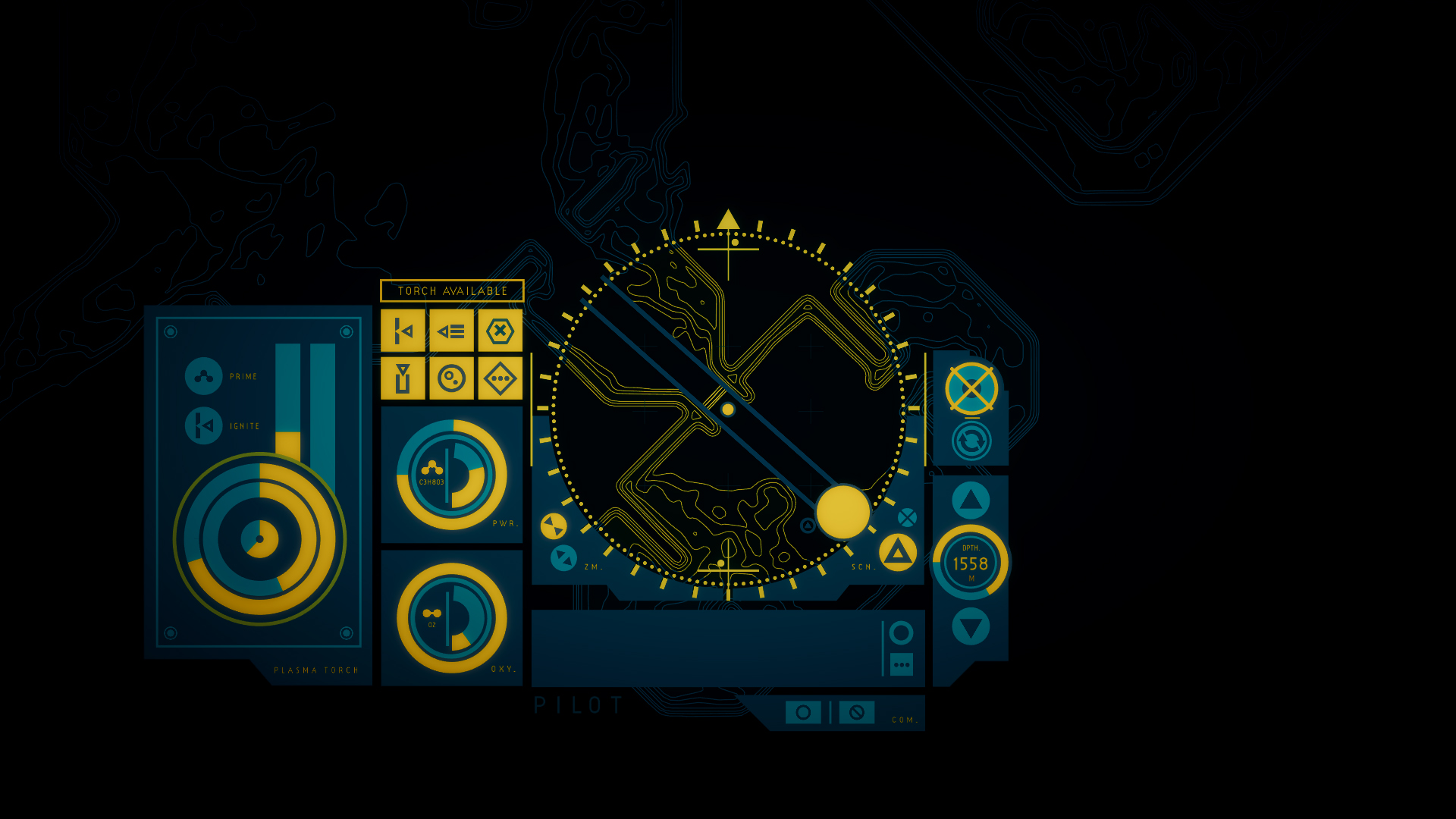In Other Waters Review
What we can’t see won’t (not) hurt us

I’m scared of the ocean. The size, the weight, the depth, everything about the ocean is bigger than I could see from one shore. I went to it many times growing up in Florida. Familiarity never assuaged the intrusive thoughts that I don’t know what lurked in these waters with me. I’ve probably stepped next to a dozen nurse sharks, narrowly avoided pissing off a stingray, and, in a way that only these thoughts can justify, inhabited the same body of water as a giant squid. I can’t see what’s down there, down by my feet or down the mid-Atlantic ridge. I don’t want to see.
But an AI can only sense using their instruments. Volume, pressure, visibility, these are simply measurements on your screen in In Other Waters. As the AI of a submarine helmed by xenobiologist Ellery Vas, I descended all the way down to the very bottom of Gliese 667Cc’s lively oceans and never once saw any of the creatures that creep into my periphery on Earth. Sight was replaced with sonar, every plant and animal a yellow dot or splash of colour atop the cartography that mapped my screen. Measurements displayed atop the hallmark UI filled in the rest of the picture I was privy to.
More than a pretty picture

The doctor coloured it in. Not only through surface descriptions, but with her knowledge of ecology and recognition of the behaviours of the animals and plants we shared a space with too. I never really saw the otherworldly as I swam by giant bioluminescent tentacles or methane vents on the seafloor. Instead, the doctor, in pursuit of her colleague, an old flame, recorded the life on the floor and the mystery she pieced together over the six-hour story. The alien here isn’t much of a sight but a collection of words.
Reductively, In Other Waters feels like a thick paperback sci-fi novel was made into a hypertext game that was structured like a Metroidvania, but also does the walking-sim thing. But it doesn’t look like any of those. In Other Waters uses UI as a thematic filter. I had to learn to see as this AI sees, recalling the start of every first-person shooter where we look around the screen to light up something in our cockpit or helmet. But this time there was friction. I couldn’t just move my head to see what coral or fish was just out of view, I had to learn to both use and read the sonar. Even activating a tool means powering it up and moving all the parts in place. It’s not intuitive because that would miss the point, but the interface is well designed enough that after a few hours I was able to manoeuvre between menus, sonar, and navigation as smoothly as I wanted to.
Did we pass this earlier?

Yet even ambiguously sentient AIs don’t have great maps of uninhabited planets, and throughout the game, I did feel lost without a waypoint. It wasn’t always the adventurous lost of a good open world, but more the “I have no clue where I’m going in this big dark ocean except that I was supposed to start heading south 15 minutes ago” lost. The “is that the same horror-creature I passed 5 minutes ago?” lost. The “this can’t be right, those tentacles stretch into the depths forever” lost. However, the destination was always at the end of my path and I began to recognize the disorienting effect of all these design choices. The ocean becomes intelligible through otherworldly means.
In other waters, the fear of the ocean is a fear of systems. Systems of the natural and artificial are spun around, submerged beneath the surface, and retrieved from the sample bay to make purpose of life and meaning from death. The last time I visited the beach was at sunrise. I dropped a friend off at an international airport, drove on a highway out of the city, took a right before the Space Center, and ended up in Cocoa as the red light of the sun breached the horizon. You’re never far from the ocean in Florida. And every day of my life here I have done more to harm the biome through natural and artificial systems than a jellyfish every could to my lone body. It’s not clear, but we don’t need an AI to tell us what we’ve done. In the reflection of other waters, I see a fear of us.
[Reviewed on Nintendo Switch]

